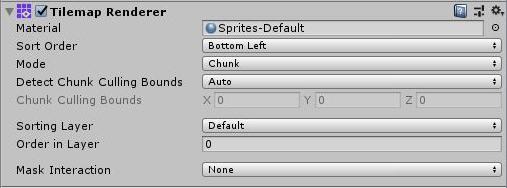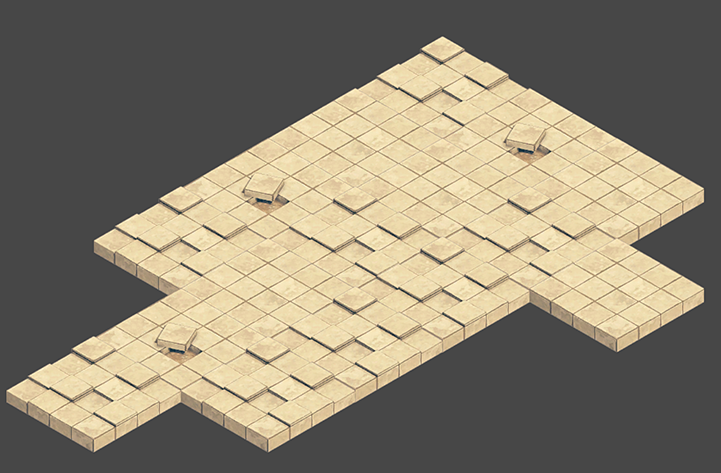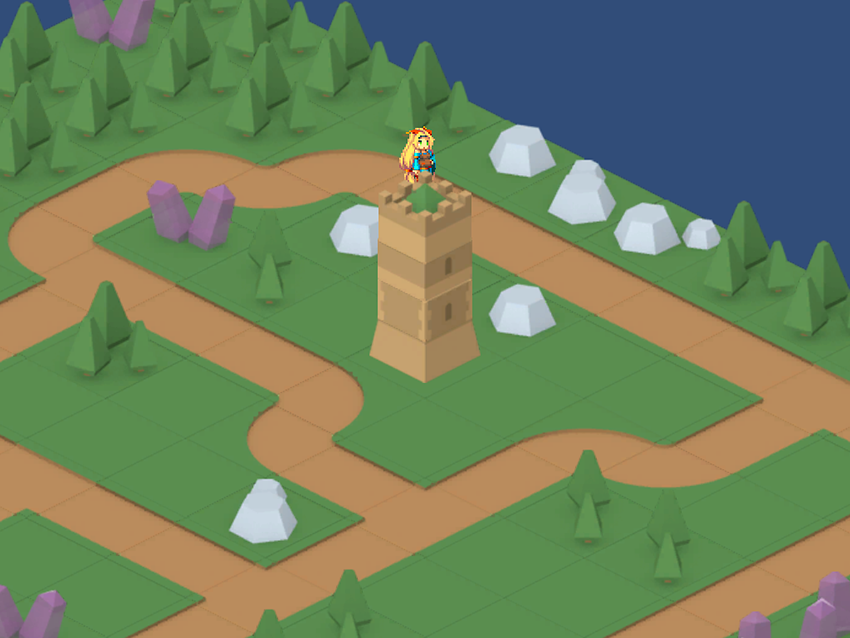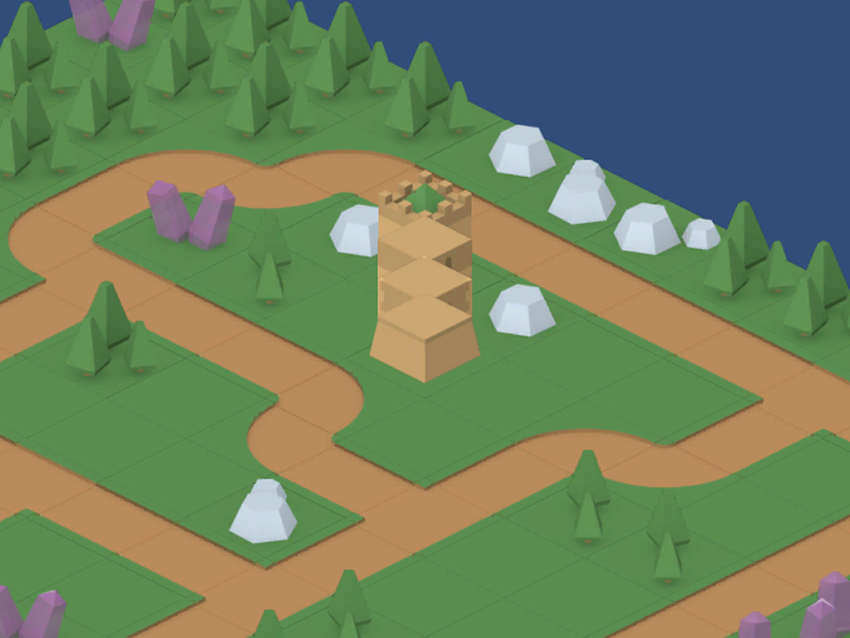- Unity User Manual 2023.1
- 2D ゲーム開発
- Tilemaps
- アイソメトリックタイルマップ
- タイルマップレンダラーモード
タイルマップレンダラーモード
The Tilemap Renderer component renders the Tilemap in the Scene. Unity creates Tilemaps with the Tilemap Renderer attached by default. The Tilemap Renderer can:
レンダーモードは、レンダリング時のタイルマップスプライトのソーティングに影響します。
Chunk 使ってひとまとめにレンダリングする
Chunk Mode is the default rendering mode of the Tilemap Renderer:

Chunk モード に設定すると、Tilemap Renderer はタイルマップのスプライトをまとめて処理し、レンダリングします。それらは、2D Transparent Queue でソートされる場合、1 つのソートアイテムとして扱われます。これによりドローコールの回数が減少しますが、他のレンダラーはタイルマップのどの部分間にもレンダリングできなくなり、他のレンダリングされたスプライトをタイルマップスプライトと織り交ぜることができなくなります。
スプライトアトラスをソートに使用する (Chunk モードのみ)
Chunk モード では、タイルマップレンダラーは複数のテクスチャから個別にタイルをソートすることができず、タイルスプライトのレンダリングに矛盾が発生することがあります (下の例 を参照)。

この問題を解決するには、タイルマップを構成するすべての個々のスプライトを 1 つの スプライトアトラス にまとめます。これを行うには、以下の通りです。
Create a Sprite Atlas from the Assets menu (go to: Atlas > Create > Sprite Atlas).
Add the Sprites to the Sprite Atlas by dragging them to the Objects for Packing list in the Atlas’ Inspector window.

Click Pack Preview. Unity packs the Sprites into the Sprite Atlas during Play mode, and correctly sorts and renders them. This is only visible in the Editor during Play mode.

Individual モードで個別にレンダリングする

In Individual Mode, the Tilemap Renderer sorts and renders the Sprites on a Tilemap with consideration of other Renderers in the Scene, such as the Sprite Renderers and Mesh Renderers. Use this mode if other Renderers interact with Sprites and objects on the Tilemap.
このモードでは、タイルマップレンダラーは、タイルマップ上の位置と設定されたソートプロパティに基づいてスプライトをソートします。例えば、このモードで、キャラクタースプライトを障害物スプライトの間に位置することができます (下の例を参照)。

同じ例を Chunk モード を使用すると、キャラクターのスプライトが地面のスプライトの裏に隠れることがあります。

各スプライトを個別にタイルマップにレンダリングする際に Idividual モード を使用すると、オーバーヘッドが増えるためパフォーマンスが低下する場合があります。
Individual モードでの Z as Y Tilemap のカスタム軸のソートモード
Isometric Z as Y タイルマップでタイルスプライトを正しくソートしレンダリングするには、Transparency Sort Axis を Custom Axis に設定する必要があります。そのためには、以下を行います。
- Tilemap Renderer コンポーネントの Mode を Individual に設定します。
- Edit>Project Settings>Graphics の順に移動します。
- Transparency Sort Mode を Custom Axis に設定します。
- Transparency Sort Axis の Y 値を 1 に、Z 値を –0.26 に設定します。
Transparency Sort Axis 設定の詳細は、アイソメトリックタイルマップの作成 を参照してください。